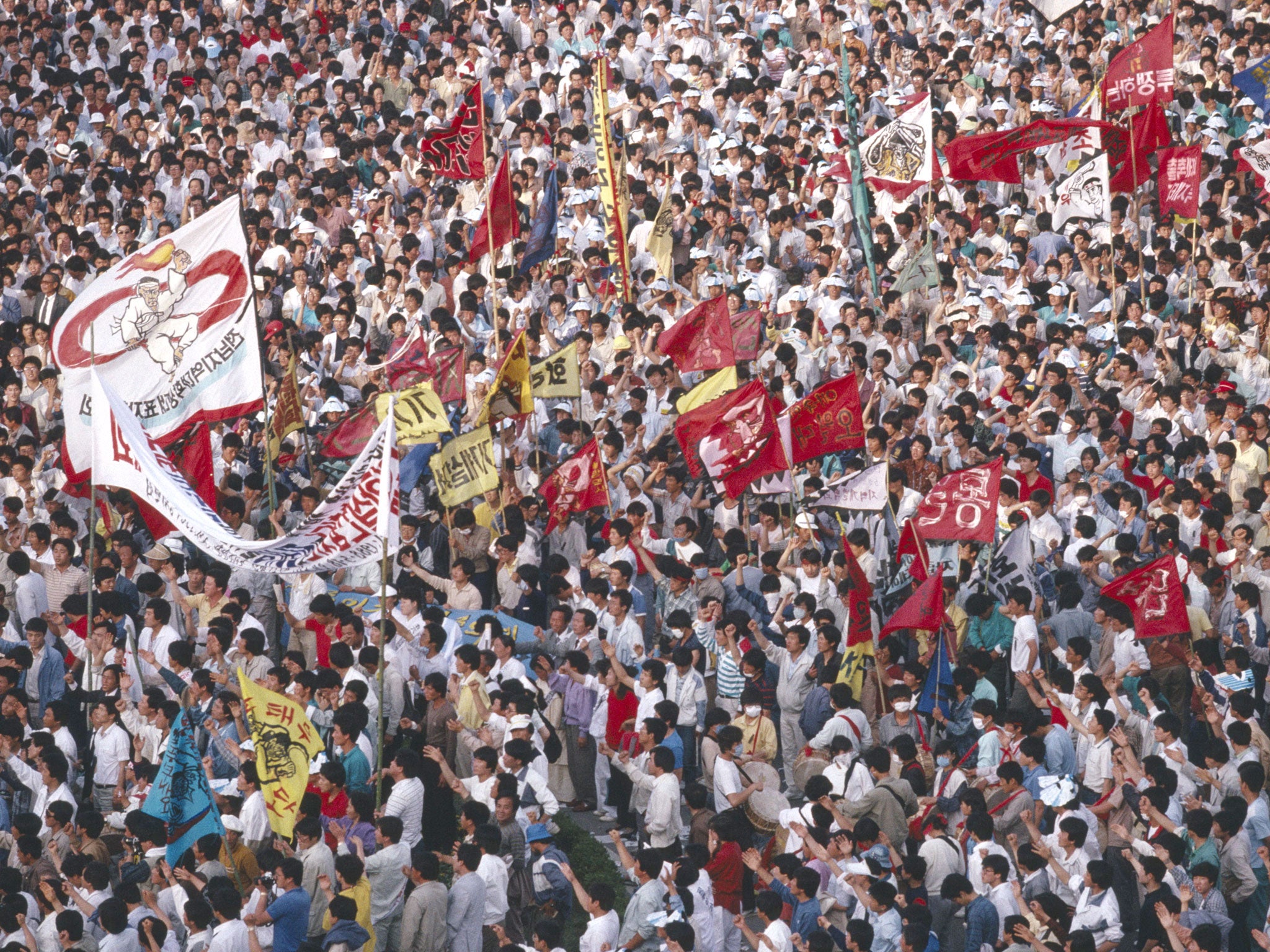Human Acts by Han Kang; trans. Deborah Smith, book review
Han Kang tackles a shocking moment in South Korean history in her searing novel

Your support helps us to tell the story
From reproductive rights to climate change to Big Tech, The Independent is on the ground when the story is developing. Whether it's investigating the financials of Elon Musk's pro-Trump PAC or producing our latest documentary, 'The A Word', which shines a light on the American women fighting for reproductive rights, we know how important it is to parse out the facts from the messaging.
At such a critical moment in US history, we need reporters on the ground. Your donation allows us to keep sending journalists to speak to both sides of the story.
The Independent is trusted by Americans across the entire political spectrum. And unlike many other quality news outlets, we choose not to lock Americans out of our reporting and analysis with paywalls. We believe quality journalism should be available to everyone, paid for by those who can afford it.
Your support makes all the difference.Han Kang's last novel was about resistance. The Vegetarian's Yeong-hye fought her battle-of-one against South Korean family life, marriage and wifely duty by starving herself into a kind of non-being. It was an unexpected book, full of a dreamy, narrative delicacy and an ideological anger digested into the life of her central character.
In Human Acts, resistance comes as political struggle on a civic scale, tracing the real events of the Gwangju uprising of May 1980 which saw students fired upon, beaten and killed as they demonstrated against Chun Doo-hwan's martial regime. That world, bloody, brutal, full of corpses in streets and school gymnasiums, is how we enter Han's story, observing the wreckage of bodies through ghost eyes, or the eyes of those who shall soon be dead, and then, in later chapters, by the survivors who are, in some senses, the living dead, unable to overcome the trauma of both their torture and their survival.
Three young people – 15-year-old Dong-ho, high school student Eun-sook, and dressmaker's machinist Seon-ju – are supervising the dead in a makeshift morgue, lighting candles beside mutilated bodies to muffle the stench of human decomposition while the deceased wait to be identified by their families.
Han manages to describe death in slow, dreadful detail without veering into the pornographic. The uprising's activism was largely undertaken by students, so we see their bodies and the anguish of parents. We are, at one point, taken within a kind of dung-heap of dead bodies which the troops collect, and this section is – daringly – spoken by the soul of Dong-ho's school friend ("My body continued to putrefy. More and more mayflies crowded inside my open wounds."). The effect is powerful but his story is left floating, rather like his soul. Many of the characters' stories intersect but remain hanging. Perhaps that is the point – that so many remained lost, damaged, unidentified, but this leaves the reader slightly stranded.
The Vegetarian showed Han's preoccupation with the human body and in Human Acts she captures the paradox of being human: the meat-like, animal reduction of our humanity – the dead bodies of the beginning chapter – alongside our ability to love and suffer for our principles, and die for them, that make us truly human.
She is excellent in summarising this paradox through torture, which she recounts in eye-watering detail. The result, again, is not lurid but tragic: "At that moment I realised what all this was for. The words that this torture and starvation were intended to elicit. We will make you realise how ridiculous it was, the lot of you waving the national flag... We will prove to you that you are nothing but filthy stinking bodies..." The tortured, after their survival, struggle to negotiate their abased identity as "nothing but a lump of meat" with their soulful sides.
The trauma here is bigger than in The Vegetarian, and dealt with in broader brushstrokes so that this novel's lyricism is sometimes swallowed up by narrating causes and effects – the government crackdown on literature, for example, and the effects of industrialisation on the working-classes. Characters sometimes stay shadowy and time-slippages in the storytelling, along with shifting viewpoints and multiple addresses to a sometimes anonymous "you" makes this a difficult novel.
If it hopes to tie the personal with the political, it does the former so much more powerfully: a mother thinking of her dead son, for example, displays literary mastery – as subtle and specific as it is universally heart-breaking. It is because Han does the personal so exquisitely that we end up wishing for less of the big political picture that takes us outside of her beautifully drawn interior worlds.
Portobello, £12.99. Order at £11.69 inc. p&p from the Independent Bookshop
Join our commenting forum
Join thought-provoking conversations, follow other Independent readers and see their replies
Comments